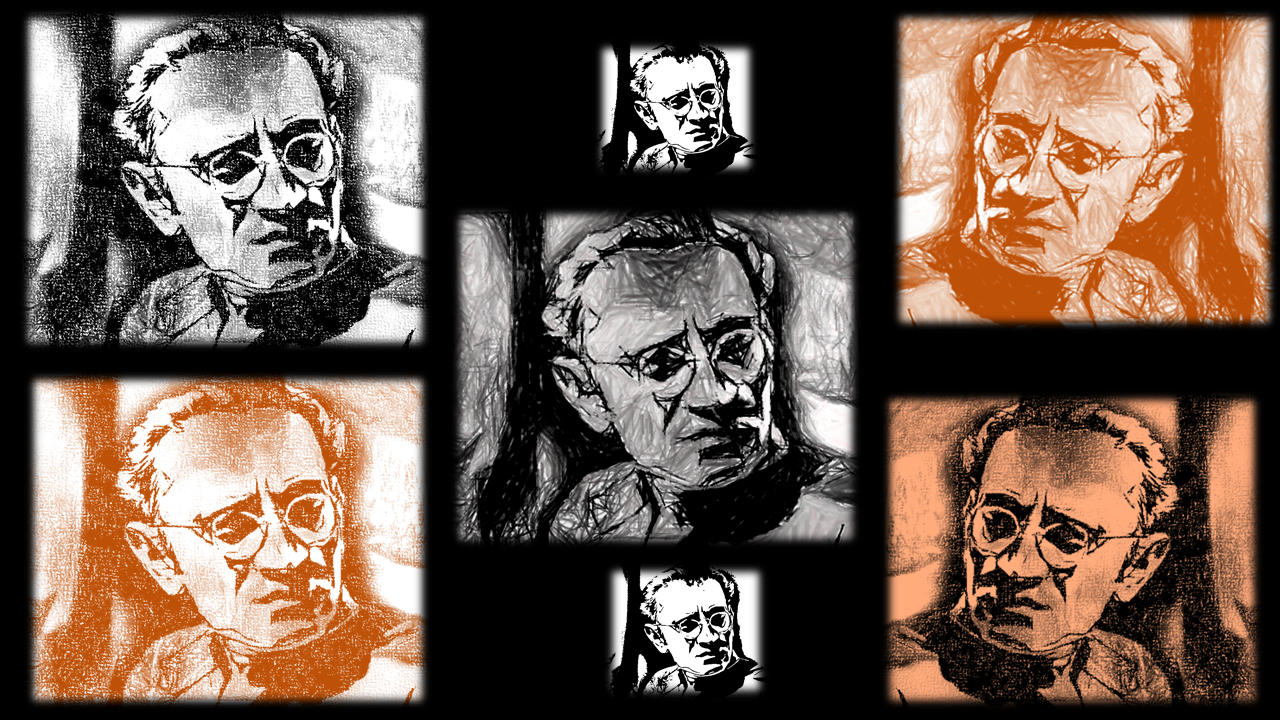Syed Ali Raza
It was the advice of Manto to write on his epitaph the following words after his departure from this short lasted world of storytelling to the eternal world of story making:
“Here is buried Saadat Hassan Manto and with him lie buried all the secrets of the art of fiction writing
Under the mounds of soil, he is still thinking about; who was the greater story teller: Him or GOD?”
Even his last words were sweet heretic, the ones depicting the same rebellion, he had possessed all his life for the people who couldn’t understand him. His ego was the reward itself might absorbed through the intellectual heritage or absence of love sometimes. His ego was indispensable because every great mind has to go through that kind of sweet ego, which acts as a compensation for the greatness within.
Manto had the magic in this of meticulously getting deep into the everything around; even the bad ones and he wouldn’t care about dark consequences the bad ones it brought along. He was the lover of those tiny emotional moments or unsaid words usually ignored by the society busy in veiling themselves with morality and ethics all the time. He had the special relation with his characters reflecting the humans in reality and an obsession with the ideas of humans.
Much of the accusations were thrown over him by the very people who were so aware of the Saadat Hassan Manto but not with the “Manto” because Saadat Hassan Manto was a human, a materialistic thing but “Manto” an art, a freed idea and a truth.
Manto is still criticized of being an atheist, vulgar and obscene story teller but very few are aware of the pain he had in his heart for poor, weak and those who couldn’t even had the beard, behind those vulgar claimed stories. Maybe he was in the hostility with the god but written 786 on his every story depicts his divinity connection. Those who labeled Manto as a vulgar were themselves unaware that those stories were to unveil the hidden lust full animals behind those apparent human skins lacking any ounce of emotionality or understanding. As far as the obscenity is concerned Manto quoted:
“Literature is never obscene it’s the society being depicted is obscene and vulgar.”
His famous writings are the ones most criticized by included Paanch Din, Swaraj Ke Liye, Hatak, Toba Tek Singh, Thanda Gosht and Boo. Each of his story had a deep reflection of the society whether about the life of a prostitute and her innocence as in Hatak, nationalism fooling in Swaraj Ke Liye, man insuppressible lust of sex in Paanch Din or the horrors of partition as depicted in stories like Toba Tek Singh which even haunted Manto for much of his life after the partition.
Manto had the magic of telling the stories in deep, sweet, critical way as possible. Whether this art came from his acclaimed intellectual ancestors like those of Maugham, Maupassant, Gorky or it came naturally through the absence of love in the presence of deep heart, “the greatest teacher among all”, is unsure.
Manto’s stories still consist of mere vulgarity for the polluted eyes but a sense of humanity and a cry for the losses, for the people these stories written about. Manto’s master pieces reflect the dirty layers of hypocrisy, filth of greed and morality illusions underneath this so called great civilizations. Manto didn’t strip off the clothes of the society but the veils of the eyes of the society which excitedly use to wear the makeup.
His novel Hatak, a tale of prostitute and her rejection by a seth along giving negative remarks about her face and then the continuance of her doubt regarding her beauty and thinking like she is no beautiful anymore depicted the loathed beautification of the people like the objects in this capitalist sick society while his stories like Paanch Din , a tale of professor pressing his natural sexual instincts and the repenting upon later that suppression and those negative, so called criminal, thoughts and imaginations regarding his female students depicts the theories of Freud on sexuality.
His story Kaali Shalwar, one of the banned stories of him, depicts the kind and emotional piece of meat throbbing with innocence far beyond the sight of so called morality presenters and people with the holy beards.
He wasn’t a khuda sukhan like Meer or greatest like Dostoevsky but neither less than that when it comes to “art of storytelling”. He had the most gifted art, one could ever have, the art of getting deep into the ideas, the pure ideas of pure and impure hearts but Manto didn’t care for the impure hearts or the dirt it brought with, but the pure heart stories made him cried for a long. He had the pain, lacked by even the biggest claimed God friends, for the oppressed people whose humanity has no value in the markets of capitalist markets. In fact, he had the art of meticulously seeing everything around, often, ignored by the un-passionate eyes and the stoned hearts.
Alas even after his demise, the revenge full society, the knowledgeable, ethical and just society without any knowledge, humanity or justice, against Manto wrote all of his life, didn’t spare him and chased him even to his grave and made the epitaph to be changed with the more sophisticated and moralized according to them words as
“This is the grave of Saadat Hassan Manto who still thinks that his name was not repeated twice on the fortune tablet of the universe.”



